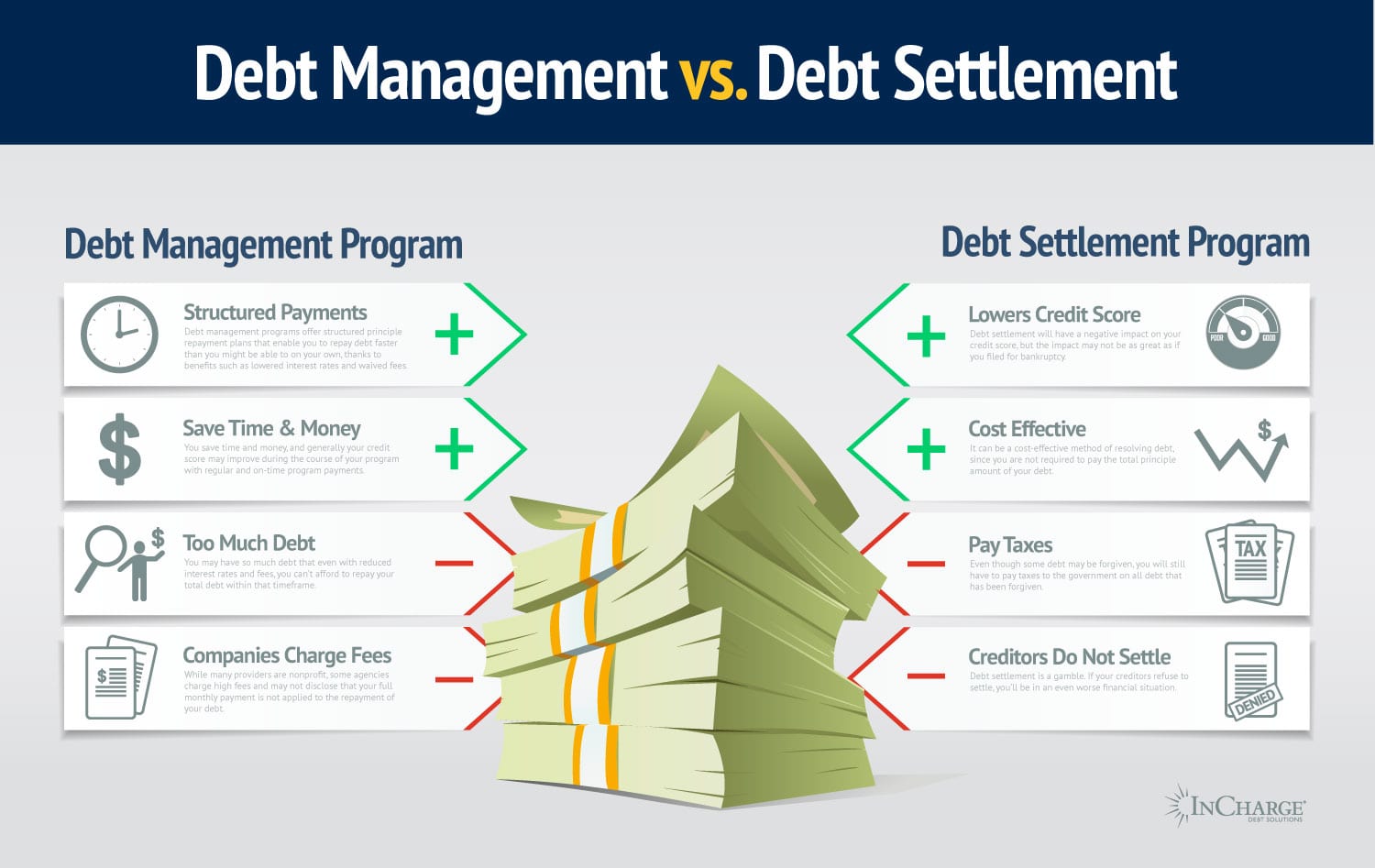Specialist Tips and Strategies for Executing a Successful Financial Obligation Monitoring Plan
When it comes to browsing the complexities of debt administration, having a well-thought-out plan is essential for attaining financial stability. From evaluating your current economic standing to negotiating with creditors, each action plays an essential role in forming a successful financial debt monitoring plan.
Assessing Your Existing Financial Scenario
Before starting a financial debt administration plan, it is critical to thoroughly examine your present economic standing. Understanding your economic scenario is the fundamental action towards properly handling and minimizing your financial debt. Begin by compiling a breakdown of all your financial debts, including exceptional equilibriums, rate of interest, and minimum month-to-month payments. This will certainly give a clear summary of the degree of your monetary obligations. Furthermore, examine your revenue resources and regular monthly expenditures to identify your non reusable revenue offered for debt repayment.
Establishing a Realistic Budget
Recognizing your current economic circumstance lays the foundation for establishing a practical budget that straightens with your financial obligation management objectives and economic capacities. When developing a spending plan, it's important to properly track your income, expenditures, and financial obligation responsibilities. By categorizing your expenditures, you can determine locations where you may need to cut back to release up funds for financial debt payment.
Prioritizing and Dealing With Debts
To successfully gain back control of your finances and job in the direction of financial stability, focusing on and tackling your debts is a critical step in your debt monitoring plan. Identify high-interest financial debts that are costing you the most cash and focus on paying them off.
After determining your high-interest debts, think about using methods like the financial obligation snowball or financial obligation avalanche technique to pay them off systematically. The financial obligation snowball method includes settling the tiniest debts initially, while the financial debt avalanche approach focuses on financial obligations with the highest rates of interest. Select the technique that lines up finest with your financial goals and motivates you to keep making development.
Additionally, take into consideration working out with lenders for reduced rate of interest rates or setting up a repayment plan if you're having a hard time to fulfill your current responsibilities. Looking for assistance from a credit rating counselor or financial advisor can also provide beneficial understandings and support on just how to successfully tackle your debts - debt management plan services. By prioritizing and addressing your financial debts purposefully, you can lead the way in the direction of moved here a debt-free future and improved financial wellness
Working Out With Lenders
When involving in debt monitoring, bargaining with page creditors is a critical action in the direction of locating equally advantageous solutions for financial obligation payment. Prior to starting negotiations, it is crucial to have a clear understanding of your monetary circumstance, including your revenue, expenditures, and the complete amount of financial obligation owed.

Building Healthy Economic Routines
Integrating regular budgeting practices is crucial for cultivating healthy economic routines. Budgeting allows individuals to track their income and costs, allowing them to make enlightened choices concerning their financial concerns. Establishing particular monetary objectives, such as saving for emergencies or retirement, can offer a clear roadmap for handling money efficiently.
Another trick element of structure healthy financial routines is living within one's ways. This involves costs much less than what is earned and preventing unneeded financial debt. Distinguishing and adopting a penny-wise frame of mind in between wants and needs can help individuals make more sensible investing options.
Frequently evaluating monetary declarations and keeping an eye on credit history records are critical behaviors that advertise financial recognition and obligation. By staying informed regarding their economic standing, individuals can recognize potential problems beforehand and take aggressive actions to address them.
Moreover, establishing a financial savings habit, also with tiny amounts, can contribute significantly to long-term monetary security. Conserving consistently not only develops an economic pillow for unexpected expenditures yet additionally cultivates a feeling of technique and obligation in the direction of money management. By regularly practicing these routines, individuals can lay a solid foundation for a secure monetary future.
Conclusion
In verdict, implementing an effective debt monitoring strategy requires an extensive evaluation of one's monetary circumstance, the advancement of a sensible budget, focusing on and taking on financial debts, working out with lenders, and building healthy economic practices (debt management plan services). By adhering to these specialist ideas and strategies, individuals can take control of their financial resources and work towards attaining monetary security and liberty from financial obligation
Comprehending your current financial situation lays the foundation for establishing a sensible spending plan that lines check up with your debt monitoring goals and financial capabilities.To effectively gain back control of your finances and work towards economic security, focusing on and tackling your financial debts is a vital action in your debt management plan.After recognizing your high-interest debts, think about making use of strategies like the debt snowball or financial obligation avalanche method to pay them off systematically. The debt snowball technique involves paying off the tiniest financial obligations first, while the financial obligation avalanche approach prioritizes financial obligations with the highest passion rates.When involving in financial debt monitoring, negotiating with creditors is a critical action towards finding mutually beneficial solutions for financial obligation repayment.